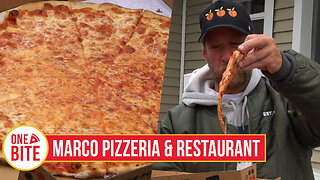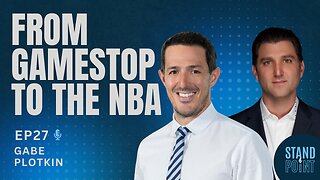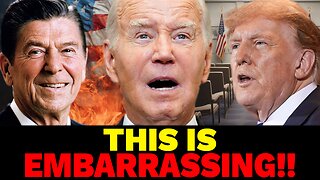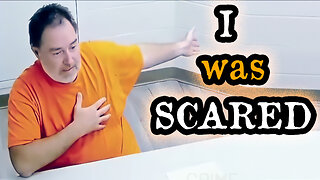(5) The Classification of Knowledge
Chapter 5: The Classification of Knowledge
https://www.smashwords.com/extreader/read/801094/14/the-war-against-truth
How can I classify my knowledge? I can classify my knowledge as being either applied knowledge, established knowledge, investigative knowledge, or speculative knowledge.
Applied knowledge is like a double-agent who is employed in service not because he or she is trustworthy, but rather because he or she is still useful.
Applied knowledge is a set of explanations that yield accurate results in useful situations. It is often possible to still get an accurate result from an inaccurate explanation. Even when we know that an explanation is inaccurate, we will still use it because it provides accurate results in useful situations. Applied knowledge is explanations that could still be inaccurate, inconsistent, incomplete, or imprecise, but they provide accurate results in useful situations.
Applied knowledge must be used cautiously because of its duplicitousness nature in that it is useful but not trustworthy. We are wise if we acknowledge the limitations of applied knowledge and use it only as a tool to accomplish our objectives. We are foolish when we overgeneralize applied knowledge and allow it to motivate our principles and objectives. Applied knowledge should inform how we can accomplish our objectives, but not what objectives we should strive to accomplish.
Can you think of situations when inaccurate explanations were used to predict accurate results? Can you think of situations when applied knowledge is used to justify esoteric beliefs?
Established knowledge is like the trustworthy advisor whose council is sought in the most important matters. Established knowledge is the diamond that is used to shape all the other stones.
Established knowledge is a set of facts, evidence, and principles that we completely trust to be accurate. We retain information that is consistent with our established knowledge. We reject information that is inconsistent with our established knowledge. We have integrity if our set of established knowledge is logically consistent and has passed the test of time. We have duplicity if our set of established knowledge is not logically consistent and is a contemporary fad.
https://www.smashwords.com/extreader/read/801094/15/the-war-against-truth
Established knowledge is the knowledge that we choose to lean on as the foundation of our beliefs. We choose which principles to trust and which principles to reject. We are wise if we choose principles that are beneficial and we are foolish if we choose principles that are detrimental. We are wise if we form our principles from a timeless beneficial purpose to guide our objectives. We are foolish if we form our principles from obsolete objectives to guide our new vain purpose.
Healthy politics involves retiring obsolete objectives when they conflict with the timeless mutually beneficial purpose. New mutually beneficial objectives must be cooperatively invented to replace the obsolete objectives in the new situation. Healthy politics involves defending the timeless mutually beneficial purpose and objectives that are not obsolete.
Diseased politics involves abandoning the timeless mutually beneficial purpose when the obsolete objectives begin to conflict with it. Detrimental outcomes result from competitive compromises between competing obsolete objectives, which can also lead to new corrupted objectives. Detrimental outcomes also result from the side effects of revoking still beneficial objectives to appease obsolete or new corrupted objectives. Diseased politics involves rejecting the timeless mutually beneficial purpose in order to defend obsolete and corrupted objectives.
We individually choose which information we will accept as facts and evidence. We are wise if accept accurate information as facts and evidence and reject inaccurate information. We are foolish if we accept inaccurate information as facts and evidence and reject accurate information.
What are some principles that you trust to be beneficial? How are those principles beneficial? Can those principles lead to any detrimental side-effects as observed in history? What are some facts and evidence you trust to be accurate? Where did those facts and evidence come from? Is it possible for someone to have integrity but still be foolish?
Investigative knowledge is like a criminal investigator whose council is sought to interpret evidence about a murder. Investigative knowledge is like a person straddling a fence who must decide which side to choose.
https://www.smashwords.com/extreader/read/801094/16/the-war-against-truth
Investigative knowledge is the knowledge that is discovered through a mixture of explanations and implications. Investigative knowledge is our set of the most likely explanations for the facts and evidence and the implications of those explanations.
The most likely explanations are not completely trusted to be accurate. The most likely explanations will have different degrees of likelihood based on the available evidence and the available explanations. The most likely explanation is trusted to be accurate if it is likely to be accurate beyond a reasonable doubt. The likelihood of the implications of the explanations is then directly determined by the likelihood of those explanations.
How likely should an explanation have to be for you to trust it as being accurate? Can the importance of an explanation and its implications affect whether you will trust it to be accurate? Can a deception seem important to mislead you by fear or by greed? If something seems important, how can you objectively determine whether it is a deception or not? If there are a large amount of imposters, does that mean the authentic does not exist? Does your established knowledge always veto explanations that conflict with it?
Speculative knowledge is like an incarcerated lunatic whose council is sought only as a last resort in dire circumstances. Speculative knowledge is like a mathematician who creates and solves logic puzzles for a world with no engineers. Speculative knowledge is like a farmer who grows crops that no one can digest but calls it food. Speculative knowledge is like a blind man trying to find a needle in a mountainous haystack. Speculative knowledge is like a person who builds the top of a building and assumes that someone else will build the bottom.
Speculative knowledge is knowledge generated through logic without any evidence or concrete application. Speculative knowledge is abstract circular reasoning. Speculative knowledge starts and ends in the imagination. Speculative knowledge hopes to find its way to reality, but is lost in the infinite possibilities of the imagination. Speculative knowledge is a form of entertainment.
https://www.smashwords.com/extreader/read/801094/17/the-war-against-truth
Speculative knowledge starts with assumptions that are generated from the imagination rather than evidence. Speculative knowledge does not strive toward achieving any real or useful application. The application that speculative knowledge strives toward is justified by the imagination rather than evidence. Speculative knowledge does not have clear objectives or to ways to measure its progress. Speculative knowledge claims it is getting closer to results with no evidence of getting closer to results. Speculative knowledge is a parasite that feeds off investigative knowledge. Speculative knowledge pretends to be investigative knowledge and uses the fruits of investigative knowledge to justify its endeavors.
What is the difference between investigative knowledge and speculative knowledge? In what professions are there people who pretend to generating investigative knowledge but are actually generating speculative knowledge?
https://www.smashwords.com/extreader/read/801094/18/the-war-against-truth
-
 12:00
12:00
Dr. Eric Berg
1 day agoWhat Exercise Burns the Most Calories?
62.4K39 -
 4:48:29
4:48:29
LumpyPotatoX2
15 hours ago$10,000 PUBG Tournament w/GamersError - #RumbleTakeover
73K19 -
 3:22
3:22
One Bite Pizza Reviews
2 days agoBarstool Pizza Review - Marco Pizzeria & Restaurant (Branford, CT)
75.4K35 -
 41:46
41:46
Standpoint with Gabe Groisman
20 hours agoEp. 27. From GameStop to the NBA. Gabe Plotkin
80.5K7 -
 55:04
55:04
Matt Kohrs
17 hours agoThe Volatile Week Ahead || The MK Show
84.9K24 -
 26:18
26:18
Stephen Gardner
16 hours agoTop Republican UNLOADS on Democrats and Biden's MENTAL HEALTH!!
92.1K119 -
 44:30
44:30
Michael Franzese
2 days agoCancel Culture Backlash of My UK Tour | Michael Franzese
149K53 -
 35:12
35:12
Island Hopper TV
1 day ago $13.34 earnedFull Costa Rica Travel Guide 2024
100K33 -
 4:43
4:43
ParisDemers
1 day agoThis Diet Hack Changed My Life! (How To Get Ripped FAST!)
104K33 -
 46:57
46:57
Crime Circus
1 day agoApple River ST*BBING!! Stand Your Ground Interrogation of Man in Wisconsin
103K46